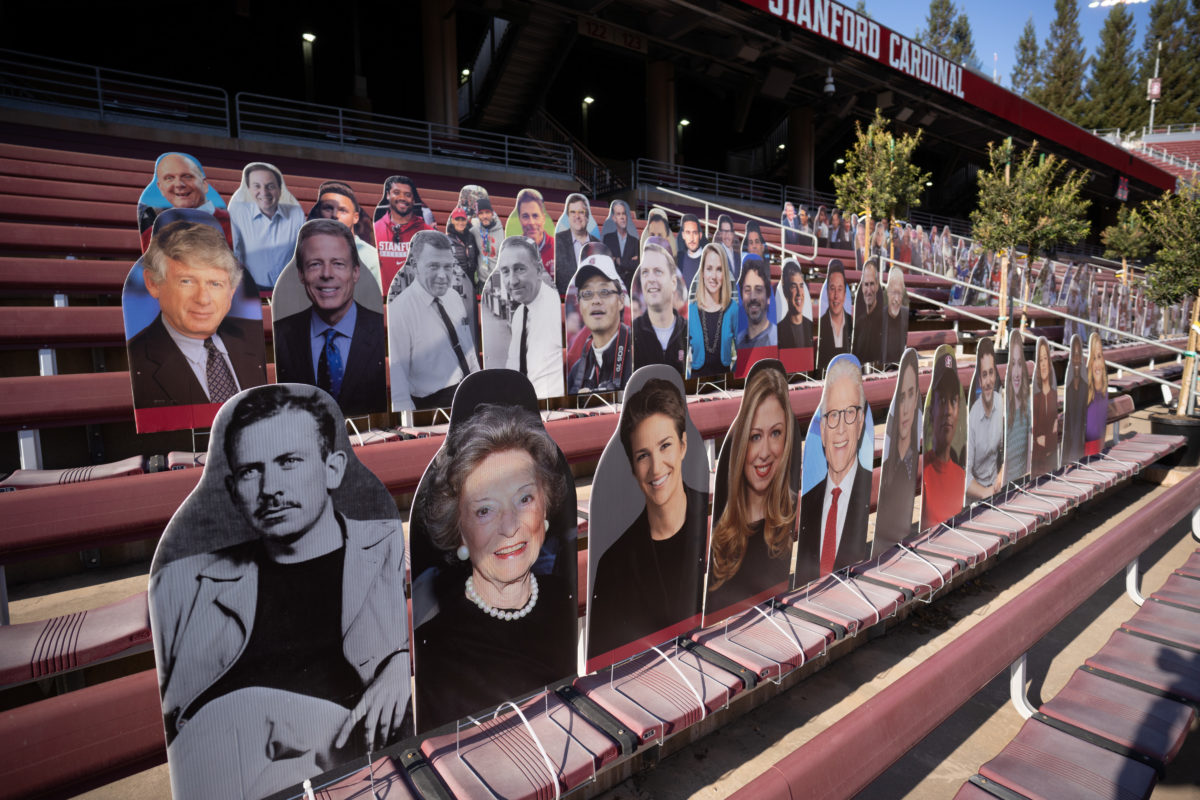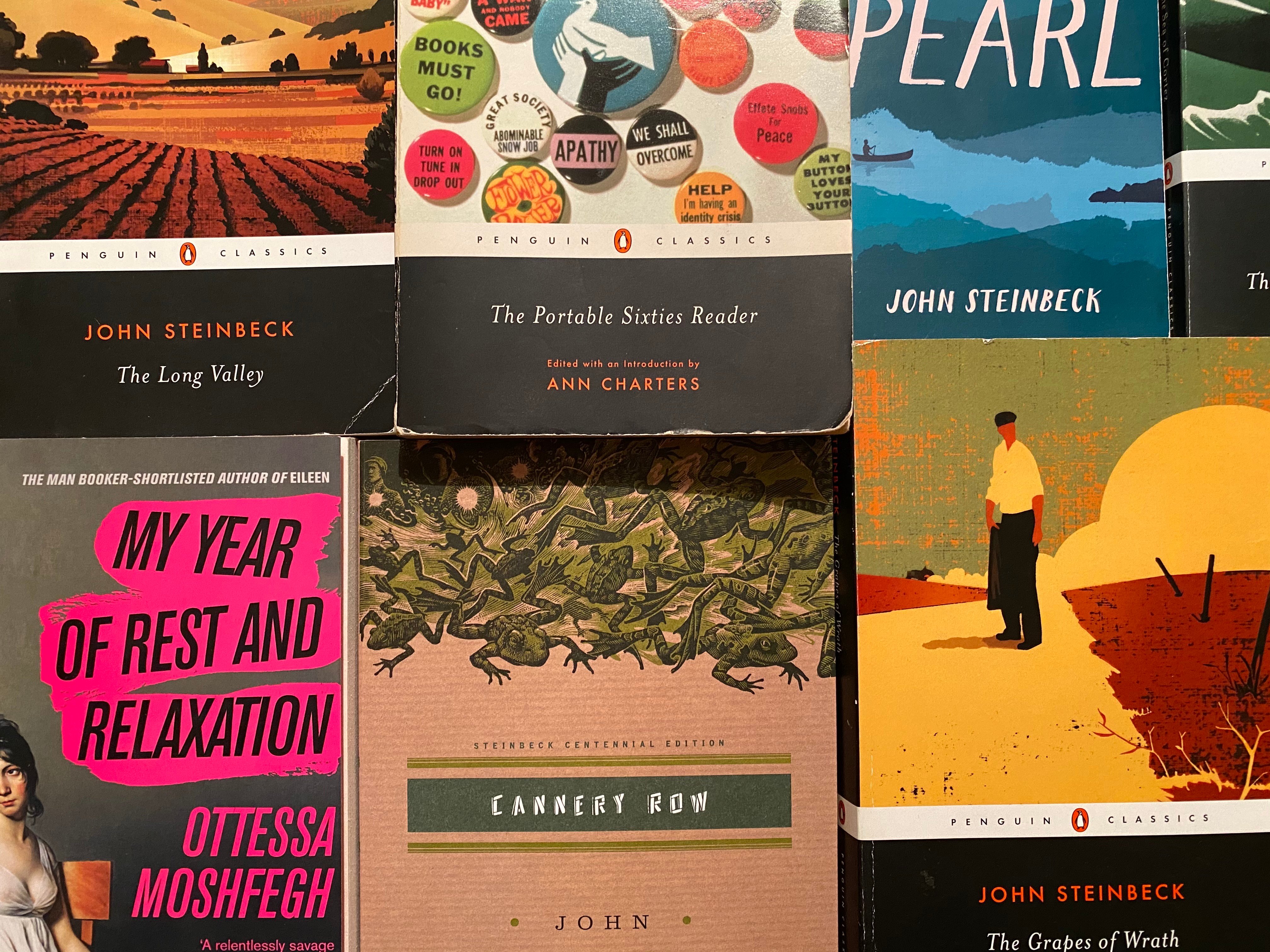Fall is in the air, the smell of nutmeg and roasting squashkins. But now there is an unmistakable tinge of foul patchouli. That is right, it is Big Game. And although we pretend to dislike the scent of the ursine denizens of California’s second-best public university, the truth is that we love it.
Big Game! We wouldn’t miss it for the world — win or lose, rain or shine.
But this year the Game may truly be at risk of getting #canceled, so here’s an alternative means for determining this year’s winner in the Bay. What we need is a metric that we both share, but we also need something we both value. And that is why my theme for 2020 is War of the Words: Author Smackdown — 3 vs. 3, their best authors versus ours.
Because Cal has no graduate creative writing program, we will not include Stanford creative writing fellows and masters’ students; Wallace Stegner, Larry McMurtry, Ken Kesey and the whole gang are out.
With this handicap it will be a good match. But remember the words of the late impartial Bay Area resident Maya Angelou, who reminded all of us that, “We are more alike, my friends, than we are un-alike.” Let’s have a clean fight (as clean as anything can be in the same sentence as Berkeley).
First up are the ancient dropouts. It’s Jack London, patron saint of the East Bay, vs. John Steinbeck — great American novelist and Nobel laureate. London attended UC Berkeley for one year between 1896 and 1897 before dropping out for the Klondike. Steinbeck attended Stanford on and off for six years between 1919 and 1925, honing his craft in student publications but never graduating.
To me, this matchup comes down to originality. London’s novellas resembled those of contemporaries to the point of plagiarism. Steinbeck, meanwhile, was an experimentalist extraordinaire. He dabbled in longform journalism, parables, plays, screenplays, travel memoirs, marine biology textbooks — and he usually succeeded. And for that Johnny Stines gets the dub.
Next we have the battle of the mind-blowing authors. From Stanford we have Douglas Hofstadter ’65, author of nonfiction like Goedel, Escher, and Bach but also a fair amount of fiction and literary translation. But Cal wins this one convincingly with the late Philip K. Dick, the author of Do Androids Dream of Electric Sheep and Man in the High Castle who attended Berkeley for a few weeks in 1949. The score is now 1-1, although Dick’s use of performance-enhancing drugs is notable.

Which authors to choose for the final comparison? Both schools have way too many Boomer-tier countercultural writers. Our armies of poets, hippies and spiritual writers are indistinguishable. At the same time each school has niches. Stanford is an undisputed powerhouse of beautiful Indian-American medical writing, producing such varied and excellent authors as Atul Gawande ’87, Siddhartha Mukherjee ’93 and the late Paul Kalanithi ’00. Cal dominates sci-fi, led now by the wonderful Charles Yu, while Stanford wins lesbian pulp fiction.
For our final comparison we have to choose modern writers — the stylish superstars carrying each school into the future.
From the bowels of Berzerkeley we have Viet Thanh Nguyen, who received his bachelors’ degree in 1992 and has gone on to write The Sympathizer, a bitingly funny and sad depiction of a Vietcong double agent in Los Angeles. Stanford answers with Yaa Gyasi ’11, the brilliant Ghanian-American author of Homegoing. Gyasi’s story, which has each chapter following a new descendent of an Ashanti matriarch-ancestor across colonial history, is a nonpareil masterpiece. Personally I want to go with Gyasi. But she now resides in Berkeley. That’s bad. But Nguyen now teaches at U$C. So Gyasi is indeed the winner.
In conclusion, Stanford wins 2-1. There will be no recounts.
Contact Cooper Veit at cveit ‘at’ stanford.edu.
